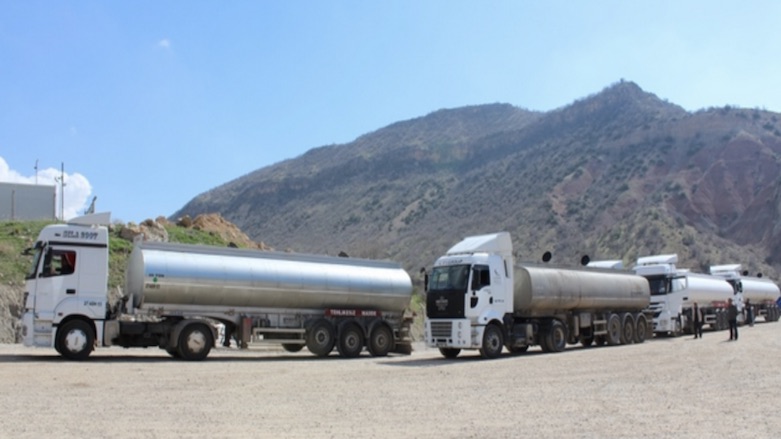Security concerns continue to impede Kirkuk oil delivery: Iranian official

ERBIL, Kurdistan Region (Kurdistan 24) – Iraq is unable to implement its plan to deliver crude oil from fields in northern Kirkuk to Iran via tanker trucks because of ongoing security concerns in the region, the head of the Iran-Iraq Chamber of Commerce said on Monday.
According to Iranian secretary-general of the Iran-Iraq Chamber of Commerce Hamid Hosseini, Tehran is experiencing difficulties as they try to move forward with an agreement with Baghdad for the transfer of oil.
“Iran is facing some problems to implement the agreement due to security issues,” Hosseini was quoted as saying by Iran’s ISNA news agency.
The official said Iran did not have the appropriate machines to scan the incoming tanker trucks which in turn has caused a delay in the delivery of crude oil from fields in northern Kirkuk Province.
“Iran does not have X-ray machines to scan the trucks coming from Iraq,” Hosseini explained, adding the Iranian government “was in talks with Iraq to use their X-ray facilities.”
Ever since Iraq and Iran agreed on the oil deal last December, the two sides have faced many difficulties in moving forward with the agreement.
Last month, Iraqi Oil Minister Jabar al-Luaibi said the export of oil from Kirkuk to Iran would begin before the end of January. But, that never happened.
Earlier this month, at a donor’s conference for the reconstruction of Iraq held in Kuwait, the acting governor of Kirkuk announced Baghdad would begin delivering oil from Kirkuk to Iran this month. With two days left in February, this seems unlikely.
The deal allows Iraq to resume the production and sale of crude from Kirkuk where between 30,000 to 60,000 bpd will be delivered by tanker trucks.
The agreement was signed after the military takeover of the disputed oil-rich province by Iraqi forces and the Iranian-backed Hashd al-Shaabi militias in response to the Kurdistan Region’s independence referendum in September.
Kurdish forces took control of the province in 2014 following the emergence of the Islamic State and the collapse of the Iraqi army.
Kirkuk is one of the largest oilfields in the Middle East, estimated to contain around nine billion barrels of recoverable oil.
